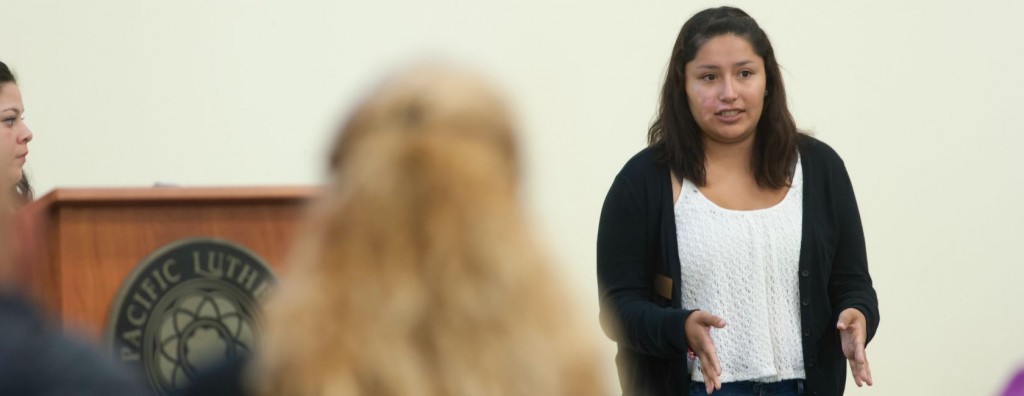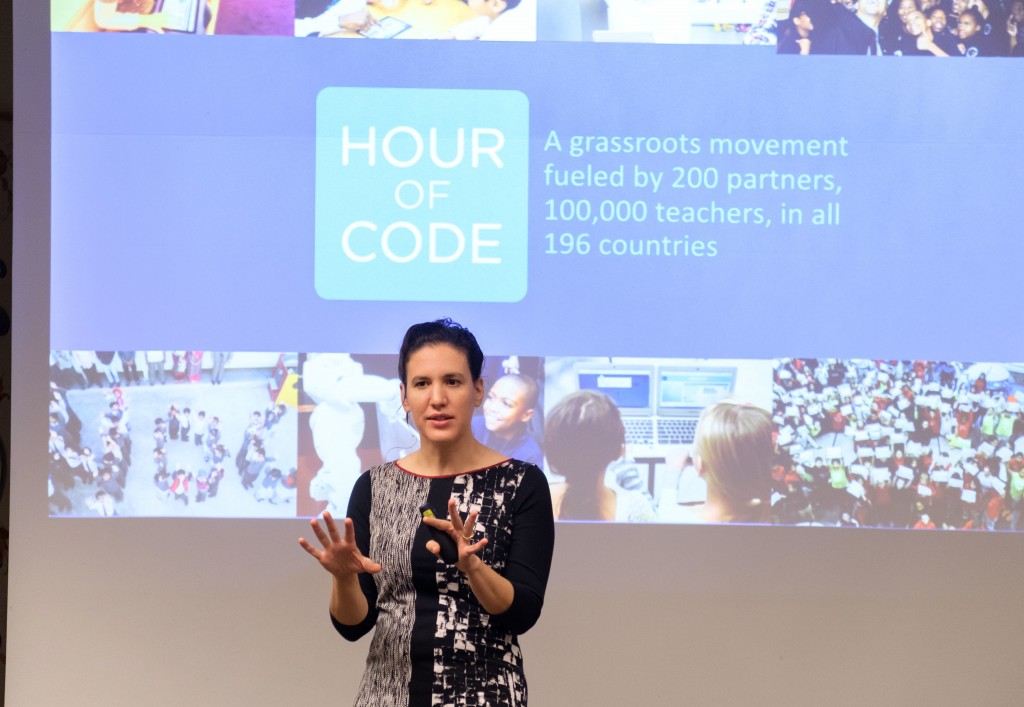Page 9 • (12,709 results in 0.024 seconds)
-

Four PLU women from the Department of Economics present their research at a national undergraduate conference in Memphis, Tennessee.
* King County Metro 70.4% Fares only covered 29.6% of operating costs Sound Transit 74.8% Fares only covered 25.2% of operating costs Pierce Transit 80% Fares only covered 20% of operating costs *Data on rates from 2014 Jessen used statistical analysis to examine the relationship between public transportation subsidies and ridership. She acknowledges that she didn’t find a definite conclusion, and would benefit from more time and more advanced methods. But the student-faculty research process gave
-

Article originally published by The Balance on February 28, 2017 by Gigi DeVault The term netnography derives its name from ethnography and net – as in “the Internet.” Ethnography is a form of qualitative research conducted by researchers who enter – and gather data within…
: Both approaches to the study of human behavior are descriptive (not experimental), use multiple methods, are adaptable to various contexts, and are immersive in nature. “An interpretive method devised specifically to investigate the consumer behavior of cultures and communities present on the internet.” (Kozinets, 1998). Ethnography and Netnography Ethnography is a robust qualitative anthropological approach that is considered to be the “Cadillac” of social research. Market researchers typically
-
Commute Smart provides education in and support for alternative transportation methods for PLU students, faculty and staff, through a variety of policies, programs, and benefits.
Ride the rails More Information Give transit a try Read More Bike to work More Information Commute SmartCommute Smart provides education in and support for alternative transportation methods for PLU students, faculty and staff, through a variety of policies, programs, and benefits. By making conscious efforts to use sustainable commuting practices, our PLU community can model sustainability as well as work toward greater harmony with the environment.PLU Commute Survey is Here!It’s time for the
-
The PLU Department of Mathematics offers a broad choice of educational and career goals. We offer three degree options: a BA and BS in Mathematics and a BS in Mathematics Education.
of educational and career goals. We offer four degree options: a BA and BS in Mathematics, a BS in Applied Mathematics, and a BS in Mathematics Education. We also offer minors in Mathematics, Actuarial Science, Statistics, and Data Science. Bachelor of Science in Mathematics: This degree is intended for those students who want the strongest possible mathematics background. It is recommended for students planning to go to graduate school in mathematics. Students may select electives from a number
-
was reputable. Some disinformation or propaganda has been delivered by withholding information and deceiving the public, news outlets, and even researchers (Example: oil companies withholding important climate change data whilst supporting climate denier movements). Evaluation Methods Consult this section for different methods to evaluate information sourcesWho, What, Where MethodUse this method when encountering sources that you don’t know much about or when you are doing research in a topic that
-
team.Getting Started with ResearchThis page will cover different types of information sources, how to choose a research topic, and tips on doing background research.Go to ContentEvaluating SourcesThis page will cover definitions of disinformation and will provide methods for evaluating information sources.Go to ContentResearch StrategiesThis page covers strategies for developing research questions, identifying main concepts in research questions, and creating search queries.Go to ContentUsing Library
-

TACOMA, Wash. (Sept. 15, 2015)—As Hispanic Heritage Month kicks off across the country on Sept. 15, this year’s observation at Pacific Lutheran University takes on extra emphasis with two new campus-wide components: • the revival of a student organization representing Latino/a and Hispanic students, and…
Diversity Center, include the Latino Youth Summit on Oct. 3 and a Día de Los Muertos celebration on Nov. 1.Latino Studies LectureLast spring, PLU was invited to partner with the Tacoma Art Museum, Centro Latino and the University of Puget Sound in applying for the Latino Americans grant from the American Library Association and the National Endowment for the Humanities (NEH). Assistant Professor of Hispanic Studies Emily Davidson in San Juan, Puerto Rico, during a May 2015 research trip. (Photo courtesy
-

Computer science drives innovation throughout the US economy, but the subject remains neglected or marginalized in K-12 education. Can more be done to improve student access to this important way of thinking? Please join Alice Steinglass of Code.org on October 9, 2018 at Pacific Lutheran…
Alice Steinglass Visits October 9 for Workshop and Lecture Posted by: halvormj / October 1, 2018 Image: Alice Steinglass, President of Code.Org in Seattle October 1, 2018 Computer science drives innovation throughout the US economy, but the subject remains neglected or marginalized in K-12 education. Can more be done to improve student access to this important way of thinking? Please join Alice Steinglass of Code.org on October 9, 2018 at Pacific Lutheran University (Tacoma) for the 14th annual
-
May 2, 2008 Grant supports environmental research With a $90,000 grant, the Environmental Studies Program intends to provide students and faculty members with more opportunities for research and creative projects. The program received the funding from the Wiancko Charitable Foundation in December 2007. The program’s faculty determined the money would support annual student-faculty research and creative projects, a mini-grant program, and provide for a faculty workshop in May and a summer
-
research methods such as interview, observation and survey techniques, measurement of behavior (e.g., reaction time, speech, problem solving) as well as data analysis. For example, a student may interview a peer when the interview does not involve any sensitive, personal information. Such projects should not put participants at more than minimal risk (minimal risks are those which are ordinarily encountered in daily life), and the data should be recorded anonymously by the students (i.e., with no names
Do you have any feedback for us? If so, feel free to use our Feedback Form.


